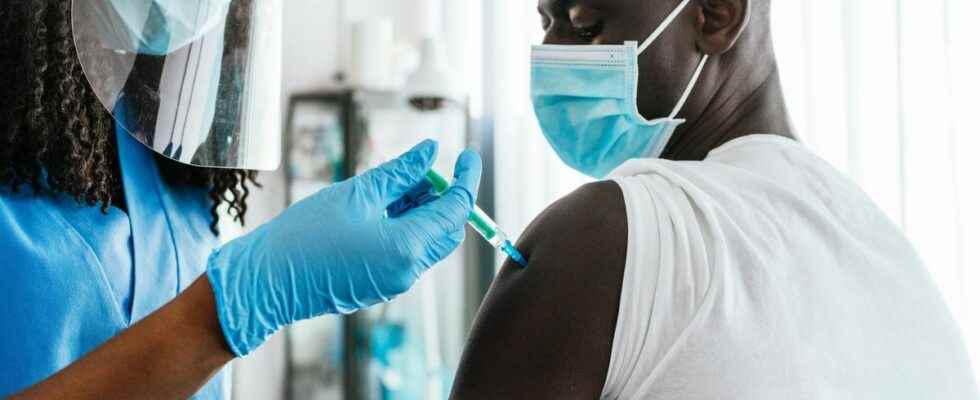Published on
Updated
Reading 1 min.
In a phase 1 study involving a small group of volunteers, an experimental vaccine triggered an immune response with the presence of neutralizing antibodies. New hope in the development of an effective HIV vaccine.
The results of a phase 1 clinical trial on a vaccine candidate have just been published in the scientific journal Science, on the occasion of World AIDS Day, which was held on Thursday 1 December.
A small cohort of 36 volunteers
To test this serum, called eOD-GT8 60mer, the researchers brought together 36 volunteers. The vaccine had a “favorable safety profile” according to the scientists and induced an immune response in 97% of the volunteers, or 35 of the 36 patients.
This first trial of an experimental vaccine candidate against HIV has therefore produced encouraging results, which could be considered a significant advance in the search for a treatment against the human immunodeficiency virus (HIV).
HIV vaccine: two doses eight weeks apart
The results show that two doses of the vaccine given eight weeks apart can induce immunological reactions against the human immunodeficiency virus. “Learning how to induce broadly neutralizing antibodies against pathogens with high antigenic diversity, such as HIV, influenza, the hepatitis C virus or the betacoronavirus family, represents a great challenge for the rational design of vaccines.” say the researchers.
HIV-AIDS, a public health problem
So far, AIDS has claimed the lives of 40.1 million people since the birth of the virus. At the end of 2021, there were 38.4 million HIV-positive people in the world, the vast majority of whom – 25.6 million – live in sub-Saharan Africa. According to figures from the World Health Organization, HIV-AIDS is one of the world’s greatest public health problems.
